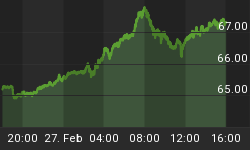The Zero Interest Rate Policies ("ZIRP") being pursued by the Bank of Canada are just as likely to have the same dramatic results for the Canadian FIRE sectors (Finance, Insurance and Real Estate) as they did for the US. Does anyone truly believe that real estate operates on different principles in Canada?

Will We Add 70 MOBD Production in Next 20 years?
Can we find 40 million barrels per day of new conventional oil in the next 20 years and add another 30 million barrels per day from other sources - ie the equivalent of almost the entire current production base?

IEA 2030 Global Oil Production Forecast
Baby Boomer Equity Market Head-wind
Simple issue. Baby boomers have a high percentage of their net worth in stocks. As people get older they sell stocks, reducing their holdings (Chart 25). The developed world is getting older (Chart 26). Net result is more sellers than buyers for public equities leading to lower price multiples in the developed world?

ZIRP, Pension Plans and Unintended Consequences
Apparently the Bank of Canada ("BOC") is concerned that low interest rates are bad for pension funds. Isn't the BOC in charge of interest rate policy? The chart below was produced by the BOC and in its words "aggregate solvency of defined-benefit pension funds in Canada is close to an all-time low". Perhaps they should reconsider their ZIRP policy?

The BOC is not the only entity sounding the alarm about ZIRP and pension fund liabilities. According to a recent C.D. Howe Institute if public-sector pension plans were forced to determine their liabilities using current yields in their return assumptions, the unfunded liability would be $227 billion - "Ottawa's calculations do not reflect investment returns available in the real world" in fact the return assumptions used by the federal government "are well above anything currently available on any asset that matches the plan's obligations," Of course under-estimating unfunded pension liabilities serves a political purpose - it allows the Federal government to claim a better fiscal position than is reality. For example, according to the report the deficit in 2010-2011 would have been $47 billion if the unfunded pension liabilities had been included, and not the $31 billion reported - 50% worse. When practiced by the private sector, accounting practices like this are charitably described as dubious and misleading.
Regards,
Agcapita Farmland Fund III
If you are a resident of BC, Alberta, Saskatchewan, Manitoba or Ontario and would like information about investing in Agcapita Farmland Fund III (including via your RRSP) please Click Here to be contacted.















